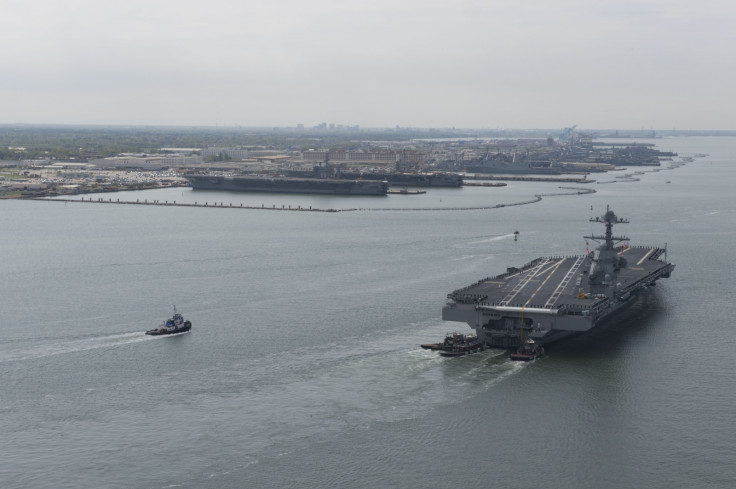Trump's administration will no longer consider climate change a national security threat
National Security report mentions climate change only once, criticising how it is hurting the fossil fuel industry.

The National Security Strategy (NSS) report released this week has not made any mention of climate change and climate-related issues being a threat to national security.
The report, however, has not excluded climate related effects from factoring into its infrastructural projects, reports Vox. Lifting piers in naval stations to make up for rising sea waters and projected flood levels, for example, is still mentioned in the NSS report.
It is the conspicuous absence of any mention of climate change itself as a threat to national security that highlights the current administration's stand on the subject.
"Climate policies will continue to shape the global energy system. U.S. leadership is indispensable to countering an anti-growth energy agenda that is detrimental to U.S. economic and energy security interests," reads an excerpt from the 2017 NSS. The document refers to climate change only once and that too criticising how it hurts fossil fuels.
This softening of stance on climate change as a concept in the NSS, is part of a government-wide strategy to dismantle the pro-environmental efforts of federal agencies, reports Vox.
Assessments by the armed forces, dating back to the early 1990s has always considered climate change as a "threat multiplier", notes the report. "Rising global temperatures, changing precipitation patterns, climbing sea levels, and more extreme weather events will intensify the challenges of global instability, hunger, poverty, and conflict," reads a portion of a 2014 US Department of Defense report.
A study published in 2016 by the Union of Concerned Scientists found that the world's largest navy base – Naval Station Norfolk, will have to deal with rising ocean waters that are expected to be between 4.5 feet and 7 feet higher than its current level within this century. At least 128 military bases are threatened by the rising sea, caused by glacial melting, in turn caused by man-made global warming.
Considering how effects of global warming are turning out to be a lot worse than what was once estimated, it might not be entirely wrong to assume that the 128 naval bases need to consider global warming a threat.
NSS also protects and promotes the administration's efforts to keep fossil fuels in the forefront by reiterating that future energy demands will be met only by fossil fuels and that the US will be a dominant provider of these resources.
The 2015 NSS under then president Barack Obama highlighted the problems related to global warming. It not only mentioned "climate change" 13 times across its 35 page length, it also listed "Confront Climate Change" as a security priority, notes the report.
"Climate change is an urgent and growing threat to our national security, contributing to increased natural disasters, refugee flows, and conflicts over basic resources like food and water," read a passage in the 2015 NSS report.






















